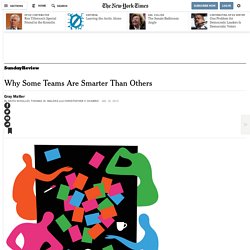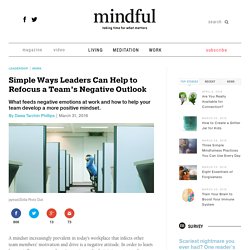

“Safe” teams also thrive in an environment that is, in general, caring and respectful. Project Aristotle found that the safest teams are made up of empathetic individuals, which shouldn’t come as a surprise: it’s easier to trust people when they care about you.
Team members also feel safe when they’re encouraged to contribute to a project’s success. Such encouragement shows each member that he or she is an important part of the group with opinions that are highly valued.
Naturally, team leaders are tasked with fostering this psychological safety. So if you’re a leader, make sure all your team members have their voices heard at least once in every meeting.
If you notice a team member is upset, encourage the person to share what’s wrong and make sure other members respond in a caring way. Resolve any conflicts in the open and never interrupt team members when they are speaking. Make sure everyone feels valued and respected!
Don’t Just Play Nice. When confronted with conflicts or difficulties at work, often we find ourselves seeking agreement, order, and “pleasantness.”

At first glance this appears appropriate—even obvious. But more often than not, seeking harmony in order to promote a healthy workplace can diminish creativity, hamper communication, and stunt growth over the long run. In his book Managerial Courage, management consultant and psychologist Harvey Hornstein concludes from his research that when pursuing harmony in the face of conflict, we can find ourselves mistakenly anesthetizing our creative thinking and skillfulness.
Why Some Teams Are Smarter Than Others. Individual intelligence, as psychologists measure it, is defined by its generality: People with good vocabularies, for instance, also tend to have good math skills, even though we often think of those abilities as distinct.

The results of our studies showed that this same kind of general intelligence also exists for teams. On average, the groups that did well on one task did well on the others, too. In other words, some teams were simply smarter than others. We next tried to define what characteristics distinguished the smarter teams from the rest, and we were a bit surprised by the answers we got. We gave each volunteer an individual I.Q. test, but teams with higher average I.Q.s didn’t score much higher on our collective intelligence tasks than did teams with lower average I.Q.s. Why it's time to forget the pecking order at work [ TED Talk : Margaret Heffernan ]
Why Being In a Group Causes Some to Forget Their Morals. Trustworthiness. Team Cohesion. Leading a Group. How to Plan a Team Offsite That Actually Works. All around the world, teams large and small assemble at offsite locations to take a step away from their day-to-day work and build team spirit.

Unfortunately, many team building offsites turn out to be ineffective, or worse. Sometimes, it’s because the sense of unity and cohesion that gets created when everyone is together having “fun” outside of the office doesn’t last long once everyone gets back to work. Other times, “team building activities” have the unintended consequence of bringing out competition and hostility between individuals instead of enhancing commitment and cohesion within the team. Simple Ways Leaders Can Help to Refocus a Team’s Negative Outlook. A mindset increasingly prevalent in today’s workplace that infects other team members’ motivation and drive is a negative attitude.

In order to learn how to influence an employee’s negative outlook, it is important to first understand its origins. In an article published in the The Journal of Organizational Development, researchers determined three major internal events that feed negative emotions in the office: 1) perceptions of an insecure future 2) perceptions of inadequate treatment by the employer 3) perceptions of inadequate working conditions Obviously, as a leader you cannot control how an employee perceives or interprets communication and events. Meet Haley, the Company Hater Haley starts work at 7 am in a dark cubicle. Research shows that employees feel emotionally drained after experiencing or witnessing sour interactions between co-workers. How to build a team like NASA. The U.S. job market seems to be reliably back on its feet, and it’s signalling a sea change for employers and employees alike.

Job seekers are no longer desperate for any opportunity that comes along. Those who are currently employed are discarding the I’m-just-thankful-I-have-a- job mindset. At long last, many people have the luxury of stepping back, taking stock, and figuring out what they really want out of a job, career and company. This means businesses are suddenly facing serious competition for talent, something they haven’t had to deal with in a while.
Recruitment and retention, two corporate players who’ve been languishing on the bench for years now, are being called to suit up. 10 Truths About Building School Teams. I've spent the last ten years serving on and attempting to build effective teams of educators -- to various degrees of success.

Trust fall. A trust fall is a purported trust-building game often conducted as a group exercise in which a person deliberately allows themselves to fall, relying on the other members of the group (spotters) to catch the person.[1] There are many variants of the trust fall.

For instance, in one type, the group stands in a circle, with one person in the middle with arms folded against his chest and falls in various directions, being pushed by the group back to a standing position before falling again. In another variant, a person stands on an elevated position (such as a stage, stepping stool or tree stump) and relying on multiple people to catch the person. This variant is potentially more dangerous and therefore it is all the more crucial to have the rest of the group in position and ready to catch him before he steps onto the platform. This type of trust fall was shown in the film Mean Girls during the "attitude makeover" scene, and in season 4 of HBO drama The Wire.